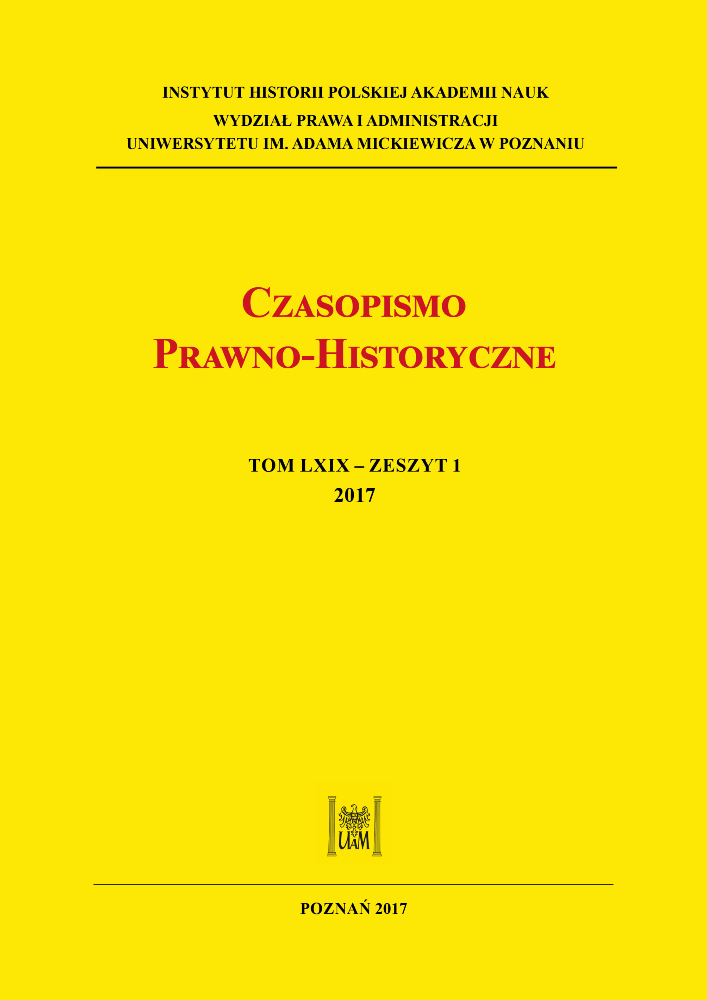Abstract
The article contains a description of the characteristics of the legal acts devoted to the status of the peasant population and of the settler population in the northwestern governorates of the Russian Empire between 1863 and 1865. The rule of Mikhail Muravyov, the governor general of Vilnius, was a significant period. In the duration of his rule, the Russian administration repeatedly undertook steps to realize the Emancipation Reform of 19th February 1861, while also taking into consideration the events connected with the January Uprising. To that end, political actions were undertaken as well as various types of legal acts were passed in relation to the peasant population. Moreover, this group was considered to a large degree to be “indigenously Russian” according to the local authorities. It was supposed to be a social stratum, together with the practically and legally supported group of settlers from the governorate from the interior of the Empire, used to politically and economically weaken the nobility which occupied the Northwestern Krai.License

This work is licensed under a Creative Commons Attribution-NonCommercial-NoDerivatives 4.0 International License.




